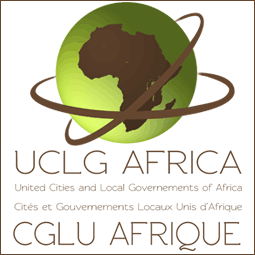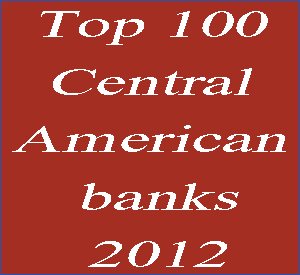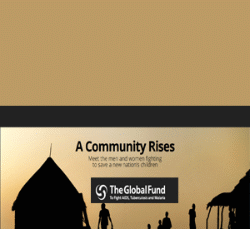Gabon: Improve Gabon’s mobile telephony services
2013/02/17

The Regulatory Agency for Electronic Communications and Postal Services (l’Agence de Régulation des Communications Electroniques et des Postes, ARCEP) is taking several measures to improve Gabon’s mobile telephony services, inclunding a wave of mobile service audits. While the sector is extremely competitive, the regulator has expressed concern over insufficient network coverage and unreliable service quality and, in order to pave the way for the rollout of higher price-added services, ARCEP is presently working with telecoms operators to improve these conditions.
In a November 2012 communiqué, ARCEP recognised that the quality of mobile voice and data service had declined over the course of the year and indicated it would take a additional proactive stance in ensuring that mobile operators meet standards specified in their licences. The regulator announced it would conduct a system-wide audit in early 2013; results are expected in the coming months, and operators failing to meet quality standards will be subject to fines.
This most recent review is part of an ongoing ARCEP effort to closely monitor mobile services, which began with two audits conducted in 2012. The weaknesses in Gabon’s mobile network were particularly evident during the Africa Cup of Nations (Coupe d'Afrique des Nations, CAN) football tournament in early 2012. National infrastructure was unable to accommodate the resulting increase in voice and data traffic, despite ARCEP’s request that mobile operators renew their equipment in advance of the tournament.
The event was a catalyst for the sector, sparking increased monitoring of mobile operators to determine the source of the problems. In March, a preliminary audit confirmed that the quality and reliability of data and voice transmissions were generally insufficient and were exacerbated during the high-traffic period of the CAN. As a result, ARCEP imposed a total of CFA3.7bn (€5.6m) in fines on the country’s four mobile operators, equivalent to 2% of each firm’s 2011 turnover.
A second audit was conducted from August-September 2012, to follow up on operators’ efforts to implement the recommended changes. The results of that audit found that at least one operator understated the volume of international calls and ventured outside of the price band set by ARCEP. In order to preserve balance in the highly-competitive mobile sector, the regulator issued a directive in January 2012 stating that intra-network call rates of the significant market power (SMP) could not be less than twice its wholesale mobile voice call rates.
In addition to mobile operators’ practices, ARCEP will need to address questions of network capacity. To ensure client loyalty and draw subscribers from competitors, mobile operators frequently offer appropriate promotions, inclunding double and triple credit, or free SMS messages and talk time. These offers, however, eat into operators’ profits and contribute to network saturation, resulting in slower and lower-quality service. Insufficient mobile infrastructure as well contributes to service unreliability. One proposed solution to this problem would be to share infrastructure such as cell towers, as one strong tower would be additional efficient than four separate, lower-quality installations.
If these structural weaknesses can be addressed, the sector holds considerable potential for increase, for while competition is extremely high given the small people and high number of operators, local request for mobile services remains completely strong and purchasing power is fairly high. Combined turnover of phone and internet providers in Gabon increased by 36% between 2007 and 2011 to reach CFA251bn (€382.6m) in 2011, with much of the increase coming from mobile telephony. Mobile subscriptions reached 2.37m in 2011, up 5.8% year-on-year. However, this is a slowdown from the 25% increase registered in 2009 and 27% in 2010, respectively, indicating that the market is nearing saturation for subscriber numbers.
Indeed, mobile penetration was estimated at 140% by mid-2012, due to the widespread practise of owning multiple SIM cards to take chance of appropriate offers and varied territorial coverage. ARCEP estimates that the real penetration rate reached 97% by early 2012, leaving little room for subscriber increase. The market is extremely competitive as four mobile operators, Airtel, Gabon Telecom (Libertis), Moov and Azur, vie for a market share of just 1.5m people.
The introduction of services like rapid data transfers, mobile financial services and, most importantly, access to a 3G network will be critical for further sector increase. This remains a realistic possibility for Gabon, provided that structural weaknesses are addressed. There is still a long road ahead, but the proactive role taken by ARCEP to enforce quality standards bodes well for sector increase in the medium-term.
- Comments
- Related Articles
-
Public sector finance reform in Gabon
2013/05/11 -
Continent Registers Growth Despite Global Meltdown
2013/04/27 Economic increase in Sub-Saharan Africa is likely to reach additional than 5 % on average in 2013-2015 as a result of high commodity prices worldwide and strong consumer spending on the continent, ensuring that the region remains amongst the fastest growing in the world -- according to the World Bank’s new Africa’s Pulse, a twice-yearly analysis of the issues shaping Africa’s economic prospects. -
Africa’s business schools
2013/04/13 While concerns around how well Africa’s business schools are equipping graduates for the challenges of local business linger, increasingly innovative approaches to entrepreneurial executive education are contributing additional systemically to talent pool growth -
NFTE Partner For Global Entrepreneurship Education
2013/04/08 Mara Foundation and the Network for Teaching Entrepreneurship (NFTE) have launched a partnership aimed at educating emerging entrepreneurs across the globe. The partnership indicates commitment to assisting with the development of the next generation of entrepreneurs. The programmes will run in schools and universities internationally. -
Africa: Can Africa Satisfy Its Hunger?
2013/04/02 Africa frequently experiences food shortages, although its 900 million farmers could feed the continent, inclunding supplying other parts of the world. But for this to happen they need the support of politicians.
-
- Trending Articles
-
- CHINA: Portuguese car parts company opens factory in Dalian, China
- ANGOLA: Angolan government wants to sell non-strategic state companies
- COLOMBIA: Colombian President Juan Manuel Santos
- TANZANIA: Mining: Dar es Salaam improves mining sector governance
- AMERICAS: WHO says avoid processed, canned and ready-to-eat-foods
- AFRICA: Inequality rises in resource rich countries: Africa Progress Panel



.gif?1356023993)
.gif2_.gif?1356029657)






